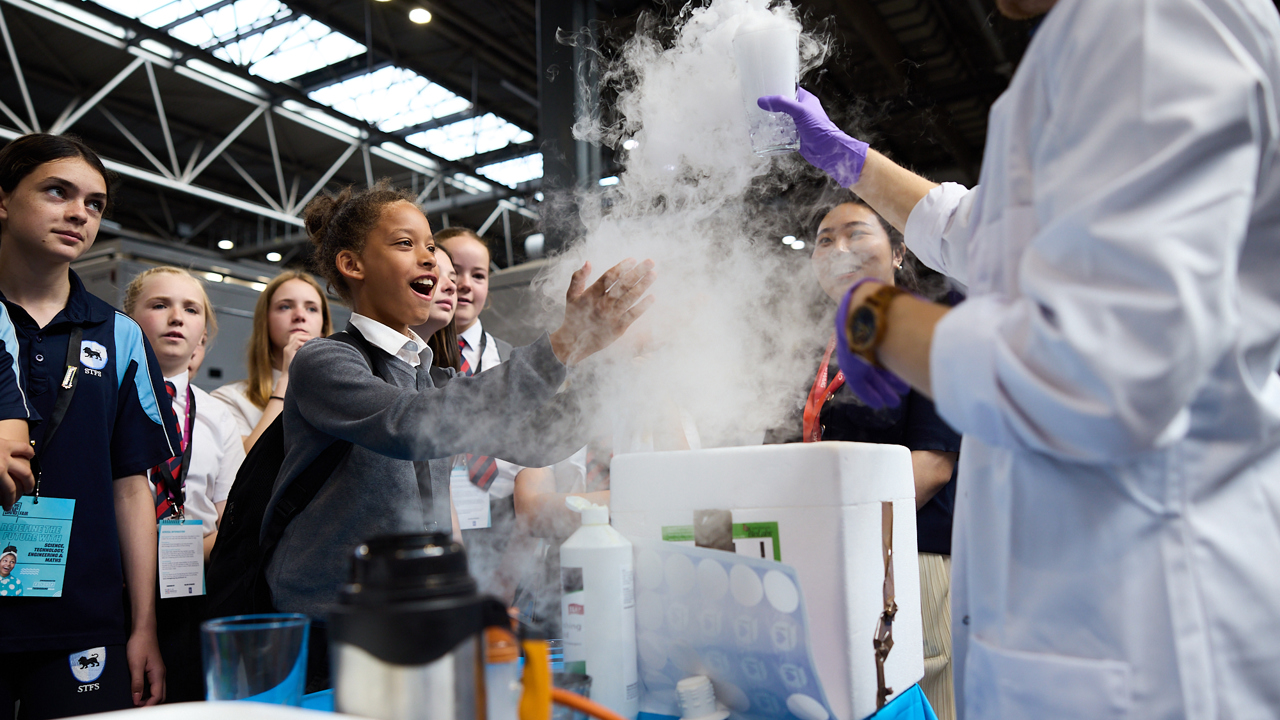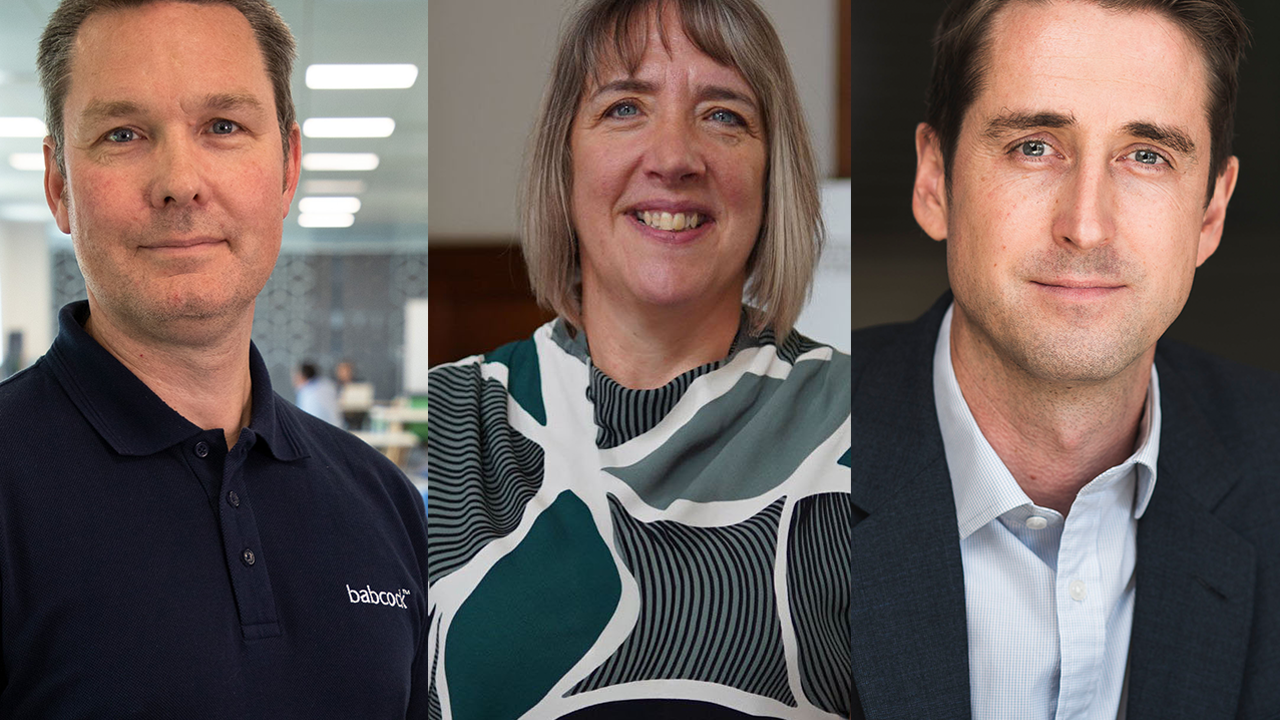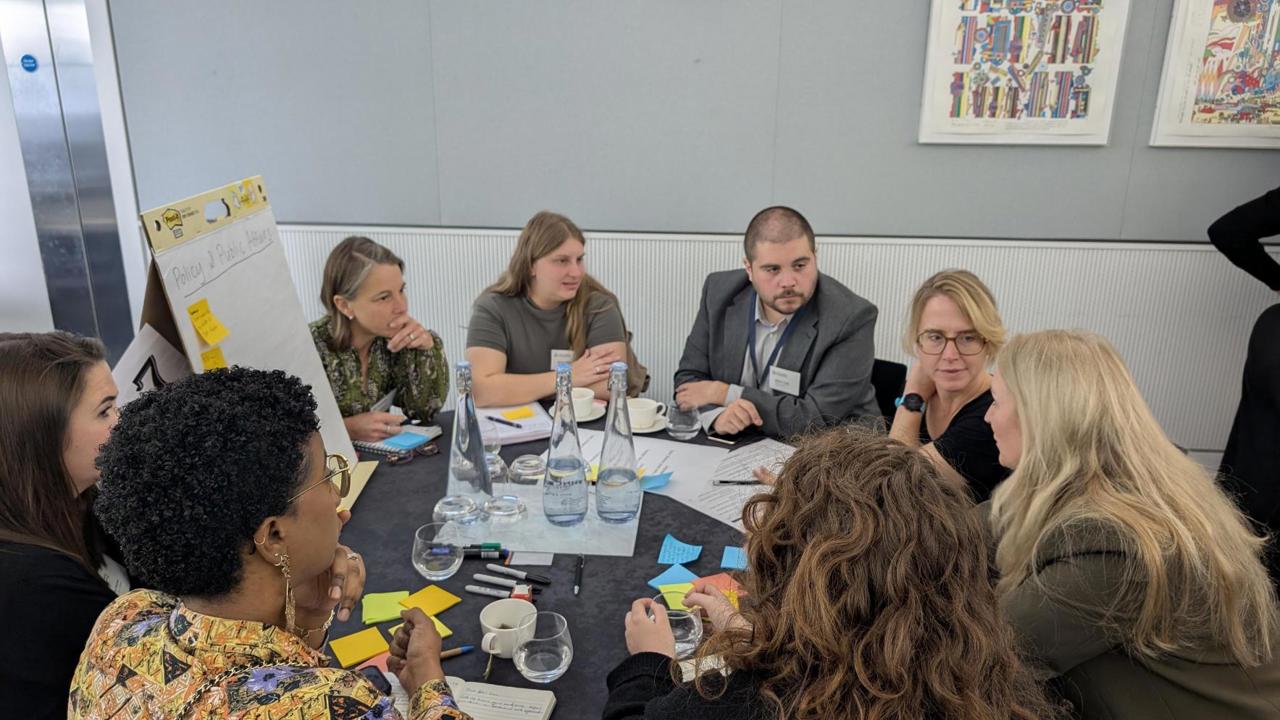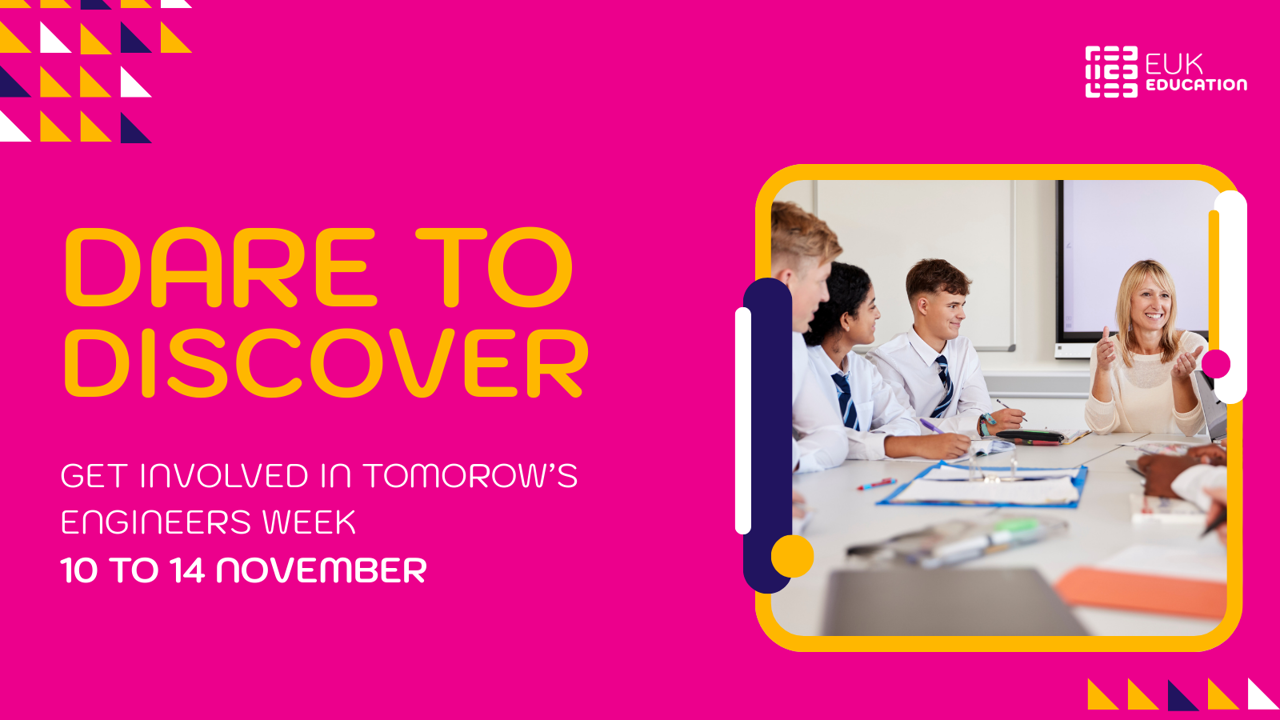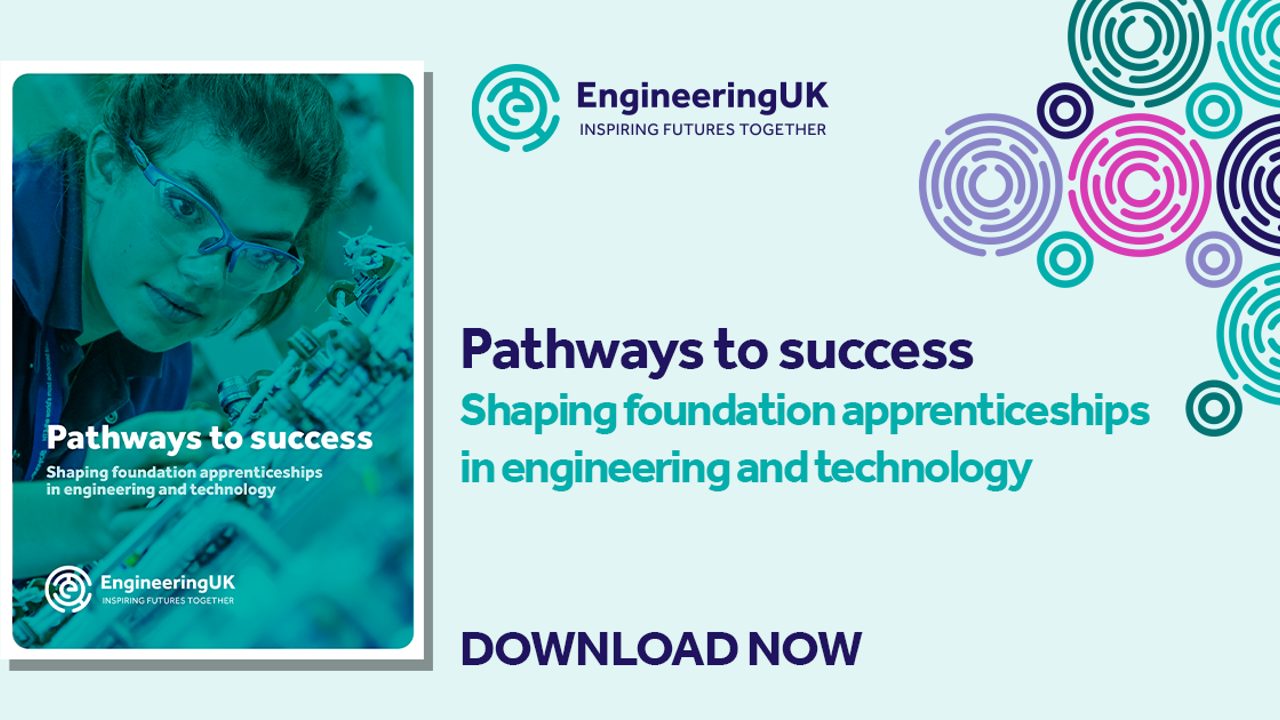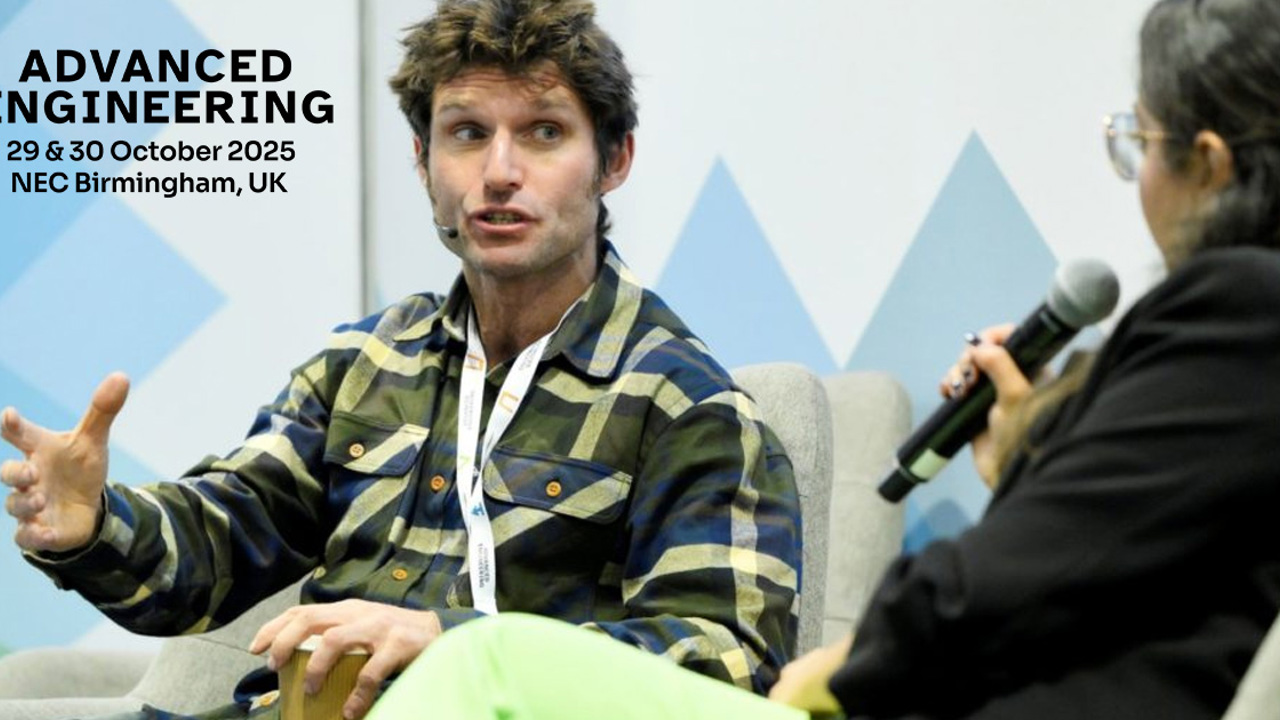
Beth Elgood
Director of Communications, EngineeringUK
Beth has been Director of Communications at EngineeringUK since 2010. Her team has responsibility for all aspects of our communications activity for our corporate and schools audiences. This includes the research & evaluation activity that helps build the evidence base for our own and others’ work; our policy & public affairs activity through which we advocate to ensure young people have the opportunities they need to progress into engineering and tech; and our careers activities that provide clear information on the breadth of engineering and tech careers and the variety of routes into them.
From sparks to strategy: what The Big Bang Fair reveals about delivering the UK’s growth ambitions
By Beth Elgood, Director of Communications, EngineeringUK
Beth Elgood, our Director of Communications, reflects on The Big Bang UK Young Scientists & Engineers Fair 2025, held in Birmingham last month. She outlines learnings from The Fair on getting more young people interested in engineering and technology careers from an early age. Beth looks at this in the context of the government’s new Industrial Strategy and the workforce demands it will create for key sectors.

The Big Bang Fair is always one of the highlights of the year at EngineeringUK. It’s the largest celebration of science, engineering, technology and maths (STEM) for young people in the UK. This year we were delighted that over 20,000 young people from more than 400 schools came to The Fair. The young people got to experience a range of hands-on STEM activities and careers inspiration. We are especially pleased that more than half of the students who attended were girls.
Across 60+ interactive stands, these young people engaged directly with employers spanning the breadth of engineering and technology. From AI and technology to sustainability, from energy and transport to health – there was something for everyone.
With the government publishing its Industrial Strategy last week, it got us reflecting about how The Fair gets more young people interested in engineering and technology careers. Ahead of our detailed analysis of the surveys we carried out with students and teachers, here are some of our reflections from The Big Bang Fair:
Interactions with employers really matter
The Big Bang Fair 2025 once again highlighted the value of young people interacting with employers from an early age. We’re still working through the evaluation of this year’s Fair, but survey data of young people attending last year showed that 80% of students agreed that The Fair made them interested in doing more STEM activities. It also increased interest in a future job in STEM (82%).
The government’s Digital and Technologies Sector Plan outlines ambitions to offer 1 million students across every UK secondary school the chance to learn about technology career opportunities by 2029. This is a positive step and something we have welcomed. We know that support for STEM outreach programmes, such as The Big Bang Fair, will be critical to achieving this target.
It will also be important for the government to consider interventions across the education system, including for children at Key Stage 3 level. This should be considered as part of its planned sector workforce strategies. Perceptions of STEM careers become embedded from a young age. The Science Education Tracker highlighted that the percentage of young people who said that they did not plan to study science after GCSE. In the research, this increased from 32% in year 7 to 37% in year 9. The ambition to expand young people’s horizons for careers opportunities must involve examination of the breadth of the education system.
Engineering skills underpin high-growth sectors
There are a wide range of sectors represented at The Big Bang Fair. This variety underscores the fact that engineering and technology skills sit at the heart of many of the UK’s most fast-growing sectors. Many of these are identified in the government’s new 10-year Industrial Strategy.
Given the cross-cutting nature of engineering and technology skills needed, we should think holistically about how to develop the STEM workforce of tomorrow. Not in silos. For example, someone on a Level 2 Engineering Operative apprenticeship will have many future options. They could progress into a mechanical manufacturing engineering role. Or a technical support role maintaining, repairing and operating equipment in the clean energy sector. And they’ll have the opportunity to develop more advanced specialisms throughout their career.
The roll-out of Foundation Apprenticeships in Construction, Digital, and Engineering and Manufacturing later this year, could provide a further route for young people to develop cross-cutting skills. These will focus on developing core technical knowledge and skills. Our Policy and Public Affairs team has convened a series of roundtables. Providers, awarding organisations, and employers from across the sector attended. Together, we considered how this new qualification can deliver for young people. We’ll be publishing a report on this shortly – so stay tuned for more.
Diversity is critical to addressing STEM skills shortages
We were pleased to see the government recognise the critical role of workforce diversity in attracting and retaining talent as part of its wider economic growth mission. The underrepresentation of women in key sectors, such as clean energy industries and advanced manufacturing, represents a major barrier to these growth ambitions. We have welcomed steps to address this, such as the “35 by 35” initiative to increase women’s representation in the manufacturing sector to 35% by 2035.
Our analysis of Labour Force Survey data for 2025 highlighted that the proportion of women in engineering and technology occupations remains worrying low at only 16.9%. This is well below the level for all other occupations, where women make up more than half of the workforce (56.2%). Achieving gender parity across engineering and technology professions over the coming decade could boost the workforce by over 2 million employees. This will undoubtedly help address shortages in high-growth sectors.
We have been exploring solutions to this challenge through our Gender Pathways project. This includes employer interaction, hands-on STEM activities, careers education and diverse role models. The Big Bang Fair encapsulates all of this.
Gender inequality in in the engineering and technology sectors can be traced back to the early stages of young people’s educational journey. The Science Education Tracker 2023, found that female students in years 7 to 9 were less interested than their male counterparts in the school subjects of science (65% vs 76% of males) and computing (42% vs 68%). This comes despite having a stronger interest in climate change issues.
Of the young people surveyed at our 2024 Big Bang Fair, girls were more likely to say that they wanted to hear more about solutions to environmental problems than boys (51% compared with 46%, respectively). As a result, this year, we increased the number of activities focused explicitly on environmental sustainability, making it a clear theme across the whole of The Fair. We also grouped these stalls close to one another to make the message as clear as possible to young people attending.
Next steps
We look forward to continuing to work with the engineering and technology community and government to ensure more young people from all backgrounds are informed, inspired and progress into engineering and technology. And to The Big Bang Fair continuing to play an important role in this for years to come.
There are a wide range of sectors represented at The Big Bang Fair. This variety underscores the fact that engineering and technology skills sit at the heart of many of the UK’s most dynamic and fast-growing sectors. Many of these are identified in the government’s new 10-year Industrial Strategy.
— Beth Elgood, Director of Communications


